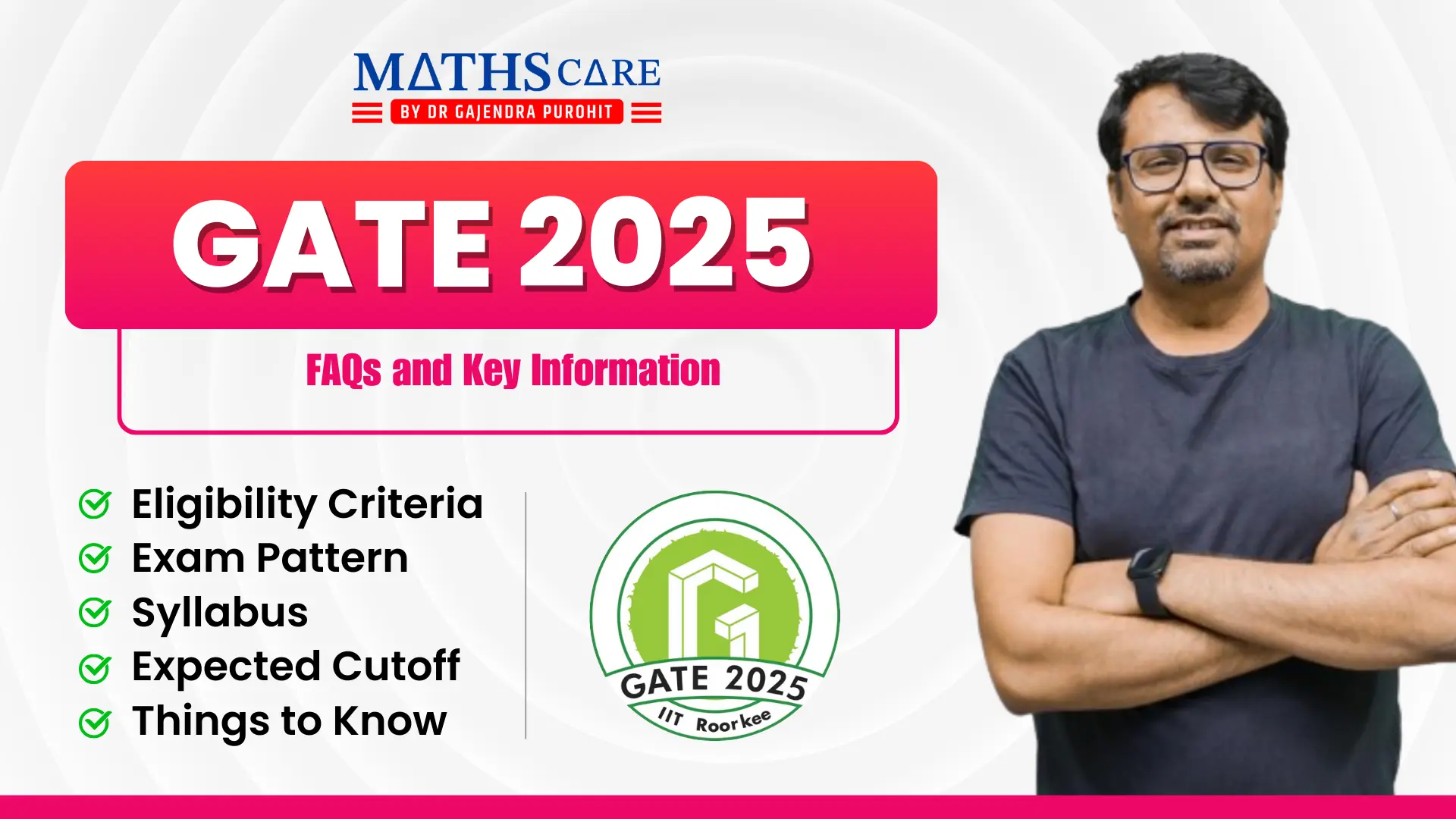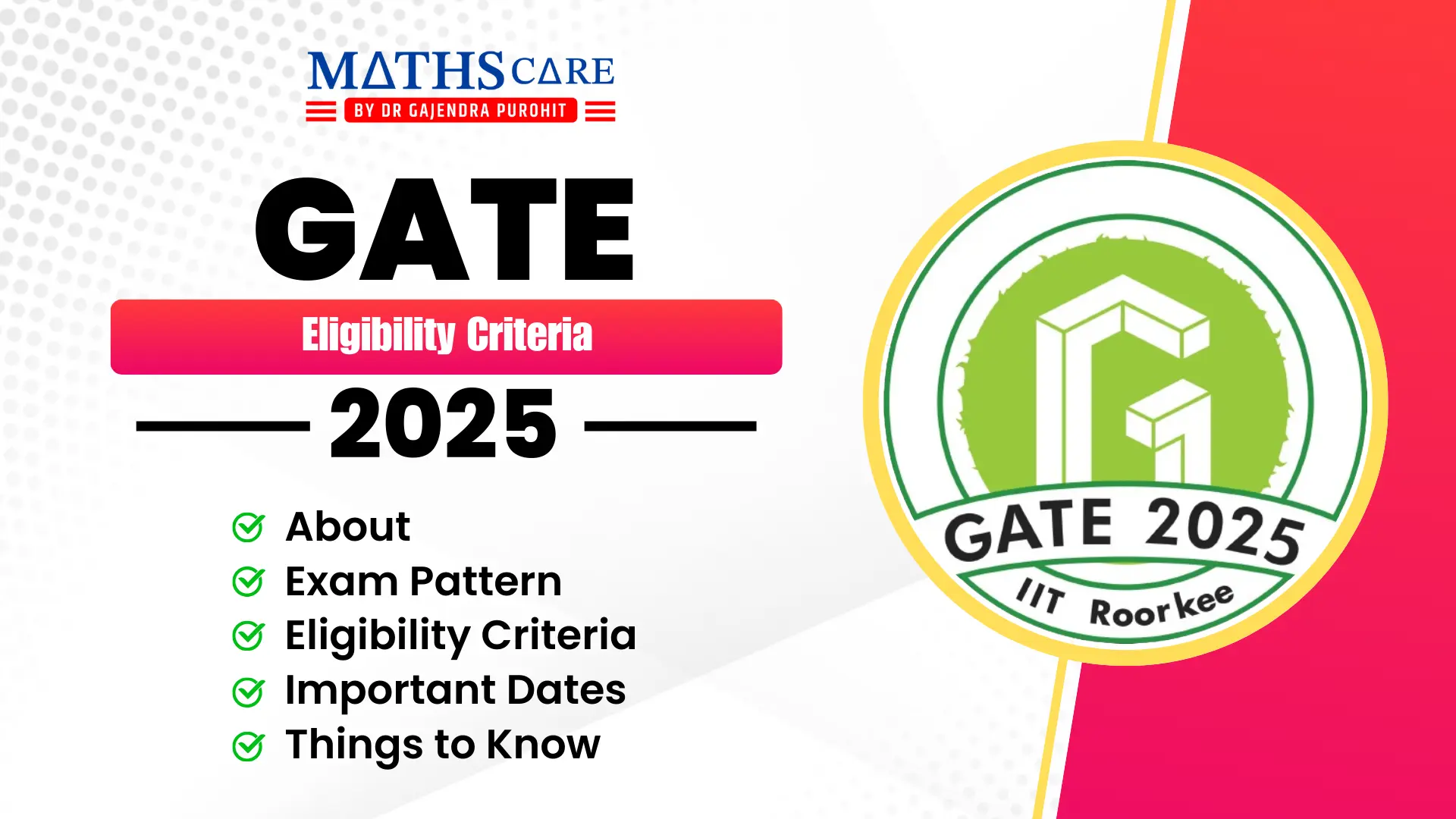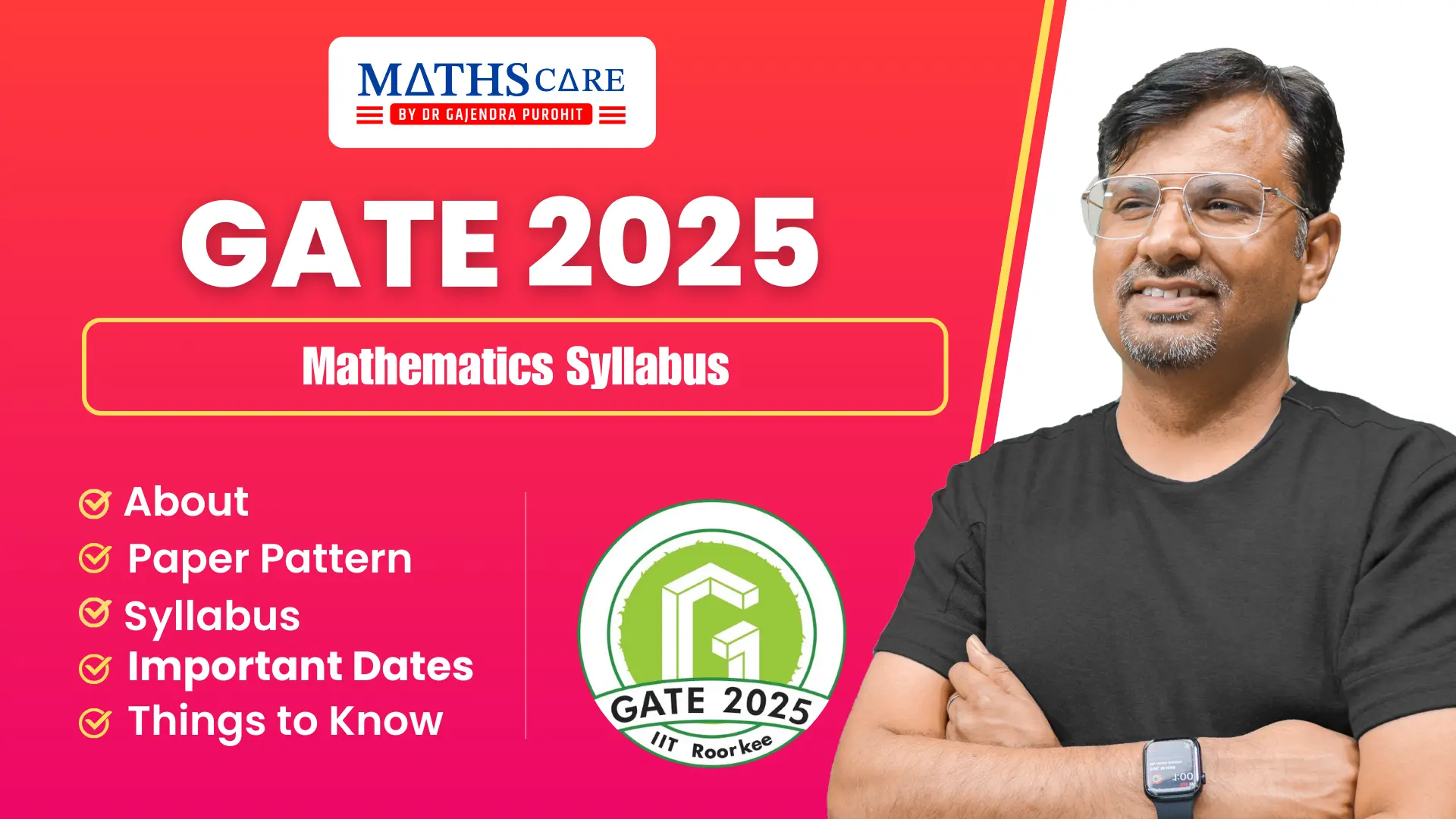GATE 2025 Exam FAQs and Key Information
GATE 2025
The Graduate Aptitude Test in Engineering (GATE) is one of India’s most important exams for engineering graduates. It’s conducted annually for candidates aiming for postgraduate studies or government jobs, such as those in Public Sector Undertakings (PSUs). The exam is co-organized by the Indian Institute of Science (IISc) and seven Indian Institutes of Technology (IITs), with a primary goal of assessing students’ understanding of undergraduate-level subjects in engineering and science. In 2025, GATE continues to provide a path for students and professionals to advance in their careers through postgraduate admissions and recruitment in PSUs.GATE is a highly competitive exam, with thousands of aspirants vying for a limited number of seats and positions. Therefore, it’s important to understand the structure, application process, and FAQs to increase your chances of success.

About GATE Exam
The GATE exam is a national-level test that is widely recognized for admission into M.Tech, ME, and PhD programs in top engineering and science institutions in India, such as IITs and NITs. Many PSUs, including major companies like ONGC, BHEL, and GAIL, also use GATE scores to recruit candidates. The exam is open to students from multiple streams such as engineering, technology, and architecture, as well as postgraduate students in science disciplines.
There are 30 subject papers to choose from in GATE 2025, covering a broad range of fields. GATE is not only a test of knowledge but also a benchmark that assesses a candidate’s preparedness for higher education or technical positions in the government and private sectors.
GATE 2025 Syllabus
The GATE syllabus is comprehensive and varies depending on the paper selected by the candidate. Each subject’s syllabus is designed to test the core concepts in engineering and science relevant to that field. Every paper includes General Aptitude, which carries 15% weightage and focuses on verbal and numerical ability. The remaining 85% covers the core subjects chosen by the candidate.
Candidates should thoroughly go through the syllabus for their chosen paper, which is available on the GATE website. It’s essential to focus on the key topics outlined and prioritize high-weightage subjects to maximize scores.
GATE Exam Paper and Pattern
The GATE exam paper consists of three types of questions: Multiple Choice Questions (MCQs), Multiple Select Questions (MSQs), and Numerical Answer Type (NAT) questions. The exam is conducted online as a Computer-Based Test (CBT). The duration of the exam is 3 hours, and the total marks allotted are 100.
The questions are distributed between General Aptitude and the subject-specific section. While the General Aptitude section accounts for 15% of the total marks, the remaining 85% is dedicated to the specific subject paper. The marking scheme involves negative marking for incorrect answers in MCQs, but no negative marking is applied for MSQs and NAT questions.
Understanding the exam pattern is crucial for proper time management during the test. It helps candidates strategize which questions to attempt first and how to allocate time to different sections.
Expected Cut-offs for GATE 2025
The cut-offs for GATE 2025 will depend on several factors, including the number of applicants, the difficulty level of the paper, and the performance of the candidates. Typically, cut-offs vary across subjects, with popular streams like Computer Science and Electronics generally having higher cut-offs due to greater competition.
In recent years, the qualifying marks for general category candidates have ranged between 25 to 35 marks out of 100. For reserved categories, the cut-offs are lower, usually falling between 20 to 30 marks. However, securing the minimum qualifying marks does not guarantee admission to top institutes or PSUs. Candidates should aim for a high score, especially if they wish to secure seats in prestigious institutions or PSUs.
GATE 2025 Exam FAQs
1. For how many papers can one apply ?
Candidates can apply for ONE or TWO papers from the 30 listed subjects. However, the option to choose two papers must be within the permissible combinations outlined by GATE. It’s crucial to select papers related to your field of study or career aspirations, as this will affect admission into postgraduate programs or recruitment.
2. If a paper is held in multiple sessions, can I choose my session?
No, candidates cannot choose their session if a paper is held in multiple sessions. The exam authorities will assign each candidate to a specific session, and this allocation is final. Candidates must appear for their assigned session only.
3. Can I change my GATE Examination Paper after submission?
Yes, you can change your GATE paper after submitting your application. However, this is only possible after the last date for application submission, when the correction window opens. You will be required to pay an additional fee for this change.
4. Can I change my GATE Examination City after submission?
Yes, candidates can request a change in their exam city during the correction window. This can only be done after the last date for submission of applications. An additional fee will apply, and no changes will be allowed after the correction window closes.
5. Can I change my Category after submitting the application?
Yes, the option to change your category is available during the correction window after the last date for application submission. This will also involve an extra fee. NO requests for changes after the correction window closes will not accepted.
Conclusion
The GATE 2025 exam offers a significant opportunity for engineering and science graduates to advance their careers through postgraduate programs or PSU jobs. With a detailed understanding of the exam pattern, syllabus, and application process, candidates can better prepare themselves for the test. The option to apply for two papers, change exam cities, and alter categories provides some flexibility, but these changes come with strict deadlines. To maximize their chances of success, candidates should stay updated with GATE notifications, thoroughly review the syllabus, and make use of the correction window for any necessary adjustments.
Success in GATE 2025 can open doors to higher education, research, and job opportunities in prestigious institutions and PSUs. Thorough preparation and strategic planning are key to achieving your goals.
GATE FAQS
Is the GATE result out for 2024?
The GATE 2024 result was released on March 16, 2024, by IISc Bangalore. Candidates can access their results through the GOAPS portal at gate2024.iisc.ac.in. Alongside the result, cutoffs and merit lists were also published for various branches.
What is a good GATE rank?
A GATE rank below 200 is considered good for securing admission to prestigious institutions for postgraduate courses. For IIT admissions, ranks between 600 and 800 can also be competitive, with ideal scores ranging from 400 to 800 based on the previous year’s cutoffs
Is GATE harder than JEE?
GATE is considered tougher than JEE due to its extensive syllabus and challenging numerical questions. It opens doors to higher education, research, and PSU jobs, making it a crucial exam for engineering graduates.
How many students appeared in GATE 2024?
8,26,239 candidates registered for GATE 2024,amongst which 6,53,292 appeared while only 1.29 lakh candidates qualifying the exam. Compared to the previous year, 25% more applications were received this year.
Can I do MTech in IIT without GATE?
You can gain admission to IIT without GATE by applying for regular M.Tech seats if your job funds your education. In this case, GATE is not mandatory for admission.
How many attempts for GATE?
here is no limit on GATE attempts. However, candidates should carefully review the eligibility criteria before applying for the GATE 2025 exam.
BEST OFFERING COURSES FOR YOU
BEST BOOKS FOR IIT JAM/ CSIR-NET
BUY BOOKS ON OUR APP
RECENT POSTS

GATE 2025 Strategy for Last Month

GATE Eligibility Criteria 2025

GATE Exam 2025 Mathematics Syllabus







